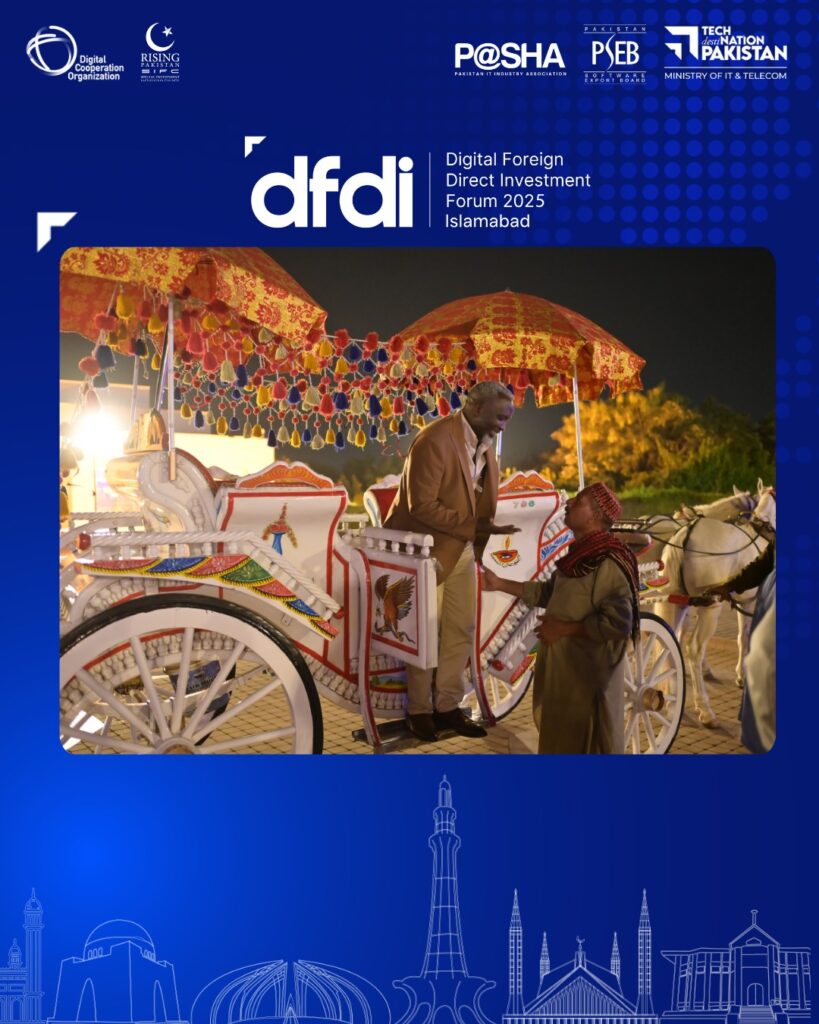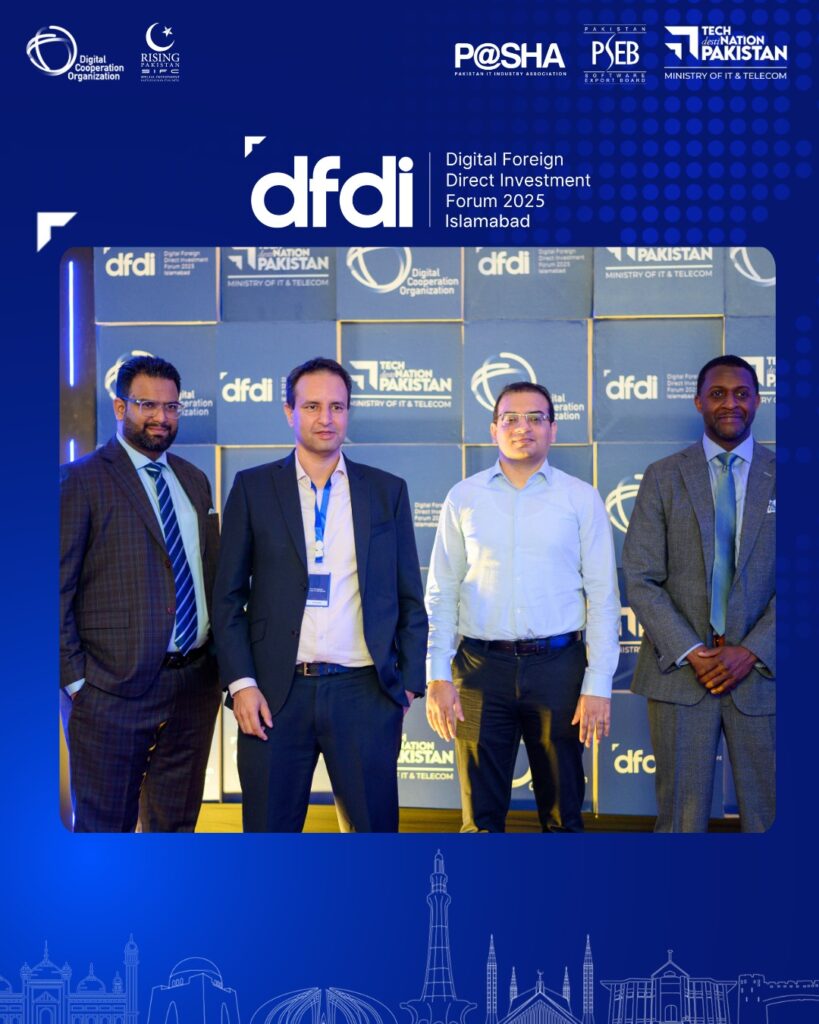Table of Contents
Saudi Investment in Pakistan – A Catalyst for Economic Transformation
Saudi investment in Pakistan has emerged as a cornerstone of the country’s economic development strategy in 2025. The infusion of Saudi capital across various sectors is not only revitalizing key industries but also fostering long-term strategic partnerships. This article explores the depth and breadth of Saudi investments in Pakistan, highlighting major projects, sectoral impacts, and future opportunities.
Strategic Sectors Attracting Saudi Investment in Pakistan
Mining and Minerals: Unlocking Pakistan’s Resource Potential
One of the most significant Saudi investments is in the mining sector, particularly the Reko Diq copper and gold project in Balochistan. Saudi Arabia’s Manara Minerals has committed $540 million to acquire a stake in this venture, which is poised to be one of the world’s largest copper-gold mines . The project is expected to generate substantial revenue and employment opportunities, contributing to regional development and economic stability.

Energy Sector: Powering Pakistan’s Future
In the energy domain, Saudi Arabia is investing heavily to bolster Pakistan’s capacity. Aramco’s proposed $10 billion oil refinery in Gwadar aims to process up to 300,000 barrels per day, significantly reducing Pakistan’s reliance on imported fuels . Additionally, Saudi companies like Wafi Energy have acquired stakes in Pakistan’s oil marketing sector, enhancing the country’s energy distribution infrastructure .
Technology and Digital Innovation: Embracing the Future
Recognizing the importance of digital transformation, Saudi Arabia and Pakistan have agreed to enhance cooperation in technology sectors. At the LEAP 2025 conference, both nations committed to supporting Pakistani startups and SMEs, facilitating access to the Saudi market, and fostering innovation through joint ventures
Infrastructure Development: Building the Backbone
Saudi investments are also directed towards infrastructure projects, including transportation and urban development. These initiatives aim to improve connectivity, reduce logistical costs, and stimulate economic activities across various regions in Pakistan.
Impact of Saudi Investment on Pakistan’s Economy
Job Creation and Skill Development
The influx of Saudi investments is expected to create thousands of jobs across multiple sectors. From mining operations in Balochistan to the construction of energy facilities in Gwadar, these projects will require a skilled workforce, leading to increased employment and vocational training opportunities.
Boosting Exports and Trade Balance
By investing in value-added industries, Saudi Arabia is helping Pakistan move up the export value chain. The development of processing facilities for minerals and petroleum products will enable Pakistan to export finished goods, improving its trade balance and foreign exchange reserves.
Strengthening Bilateral Relations
These economic engagements are reinforcing the longstanding diplomatic ties between Saudi Arabia and Pakistan. The collaboration extends beyond economics, encompassing cultural exchanges, defense cooperation, and regional stability efforts.
Future Prospects: Sustaining the Momentum of Saudi Investment in Pakistan
The Saudi investment in Pakistan is not a one-time boost—it signals a long-term commitment to mutual economic growth. As both nations deepen their bilateral ties, future prospects appear bright across multiple fronts. With visionary leadership, policy alignment, and shared strategic interests, Saudi Arabia and Pakistan are well-positioned to explore new avenues for collaboration and sustainable development.
Expansion into Renewable Energy and Green Technologies
With the global shift toward sustainability, future Saudi investment in Pakistan is expected to increasingly target green energy sectors. Saudi Arabia, through its Vision 2030 initiative, has placed strong emphasis on renewable energy, and Pakistan—with its abundant solar and wind potential—offers the perfect landscape for these ventures.
Joint investments in solar farms, wind power plants, and battery storage systems could significantly reduce Pakistan’s dependency on fossil fuels while helping Saudi Arabia export its green expertise. The result would be lower energy costs, increased energy security, and the development of eco-friendly jobs in rural areas.
Deepening Cooperation in Agriculture and Food Security
Agriculture is another promising frontier for Saudi investment in Pakistan. With Saudi Arabia aiming to ensure food security for its growing population and Pakistan possessing vast arable land and a large farming workforce, agricultural collaboration presents a win-win scenario.
Future investments may include:
- Development of modern irrigation systems
- Establishment of food processing and cold chain logistics centers
- Export-oriented farming projects aimed at producing halal meat, grains, and fruits for the Saudi market
These ventures could uplift Pakistani farmers by improving yields, reducing waste, and creating rural employment.
Strengthening Technology and Innovation Ecosystems
Building on recent momentum, both countries are expected to expand their cooperation in digital technology and innovation. Saudi investment in Pakistan may lead to:
- Technology parks and innovation hubs in major cities like Islamabad, Lahore, and Karachi
- Strategic funding for tech incubators and accelerators supporting Pakistani startups
- Partnerships in cybersecurity, fintech, e-governance, and AI-based infrastructure
This kind of knowledge transfer and capital infusion will be crucial in helping Pakistan transition into a digitally empowered economy.
Collaboration in Higher Education and Skill Development
To support the talent needs of various joint ventures, future Saudi investment in Pakistan is likely to emphasize educational exchange and skills training. Collaborative initiatives could include:
- Joint university campuses and research institutes
- Vocational training centers tailored for Saudi-funded sectors
- Scholarships for Pakistani students in Saudi institutions, especially in fields like engineering, business, and information technology
These educational partnerships will not only build human capital but also cement cultural and diplomatic ties between the two nations.
Real Estate and Urban Development
Urbanization and population growth in Pakistan are creating increased demand for smart cities, real estate, and modern infrastructure. Saudi developers and sovereign wealth funds may find opportunities in:
- High-rise residential and commercial complexes in major metropolitan areas
- Mixed-use developments in Gwadar, especially near the proposed Aramco refinery
- Smart city projects powered by IoT, green building technologies, and AI-driven urban planning
These projects, if executed with a long-term vision, could transform urban living standards and attract further foreign direct investment.
Enhancing Financial and Banking Cooperation
Future Saudi investment in Pakistan is also likely to flow into the financial services sector. With increasing trade and cross-border activities, there’s a need for more robust banking infrastructure to facilitate transactions, trade financing, and investments.
Areas of focus might include:
- Saudi banks setting up operations in Pakistan
- Joint fintech solutions for seamless remittances and payments
- Collaboration between central banks for monetary stability and risk-sharing frameworks
A stronger financial bridge between the two countries will facilitate easier capital flow, promote investor confidence, and support economic resilience.
Policy Frameworks to Encourage Long-Term Investment
For Pakistan to continue attracting Saudi investment, it’s crucial that the government maintains an investor-friendly climate. Some essential areas of reform include:
- Simplifying regulatory and tax frameworks for foreign investors
- Enhancing transparency in public-private partnership projects
- Ensuring security for assets and personnel involved in strategic ventures
- Creating a stable, pro-growth political and economic environment
If these conditions are met, Pakistan can become a regional investment hub not only for Saudi Arabia but for other Gulf Cooperation Council (GCC) countries as well.
Collaborative Research and Development
Joint R&D initiatives between Saudi and Pakistani institutions can spur innovation, particularly in areas like biotechnology, information technology, and sustainable agriculture. Such collaborations will enhance the technological capabilities of both nations.

Frequently Asked Questions (FAQs)
Q1: What are the main sectors attracting Saudi investment in Pakistan?
A: Key sectors include mining (notably the Reko Diq project), energy (oil refineries and distribution), technology (startups and digital infrastructure), and infrastructure development.
Q2: How will these investments impact employment in Pakistan?
A: Saudi investments are projected to create thousands of jobs across various sectors, including skilled and unskilled labor, thereby reducing unemployment and enhancing skill development.
Q3: What is the significance of the Reko Diq project?
A: The Reko Diq project is one of the world’s largest undeveloped copper-gold mines. Saudi Arabia’s investment in this project underscores its strategic interest in Pakistan’s mining sector and is expected to generate substantial economic benefits.
Q4: Are there opportunities for Pakistani SMEs in this collaboration?
A: Yes, initiatives like the agreements made at LEAP 2025 aim to support Pakistani startups and SMEs, providing them access to Saudi markets and investment opportunities.
Q5: How is the Pakistani government facilitating these investments?
A: The government is implementing policy reforms, offering incentives, and establishing special economic zones to create a conducive environment for foreign investors, including those from Saudi Arabia.
Conclusion: Embracing a New Era of Economic Collaboration
Saudi investment in Pakistan is not merely a financial influx; it represents a strategic partnership poised to transform Pakistan’s economic landscape. By focusing on key sectors and fostering innovation, this collaboration holds the promise of sustainable growth, job creation, and enhanced bilateral relations. As both nations continue to strengthen their ties, the future looks promising for a mutually beneficial economic journey.
Follow us on Facebook for Quick Response & Quires – Digital Foreign Direct Investment (DFDI)
